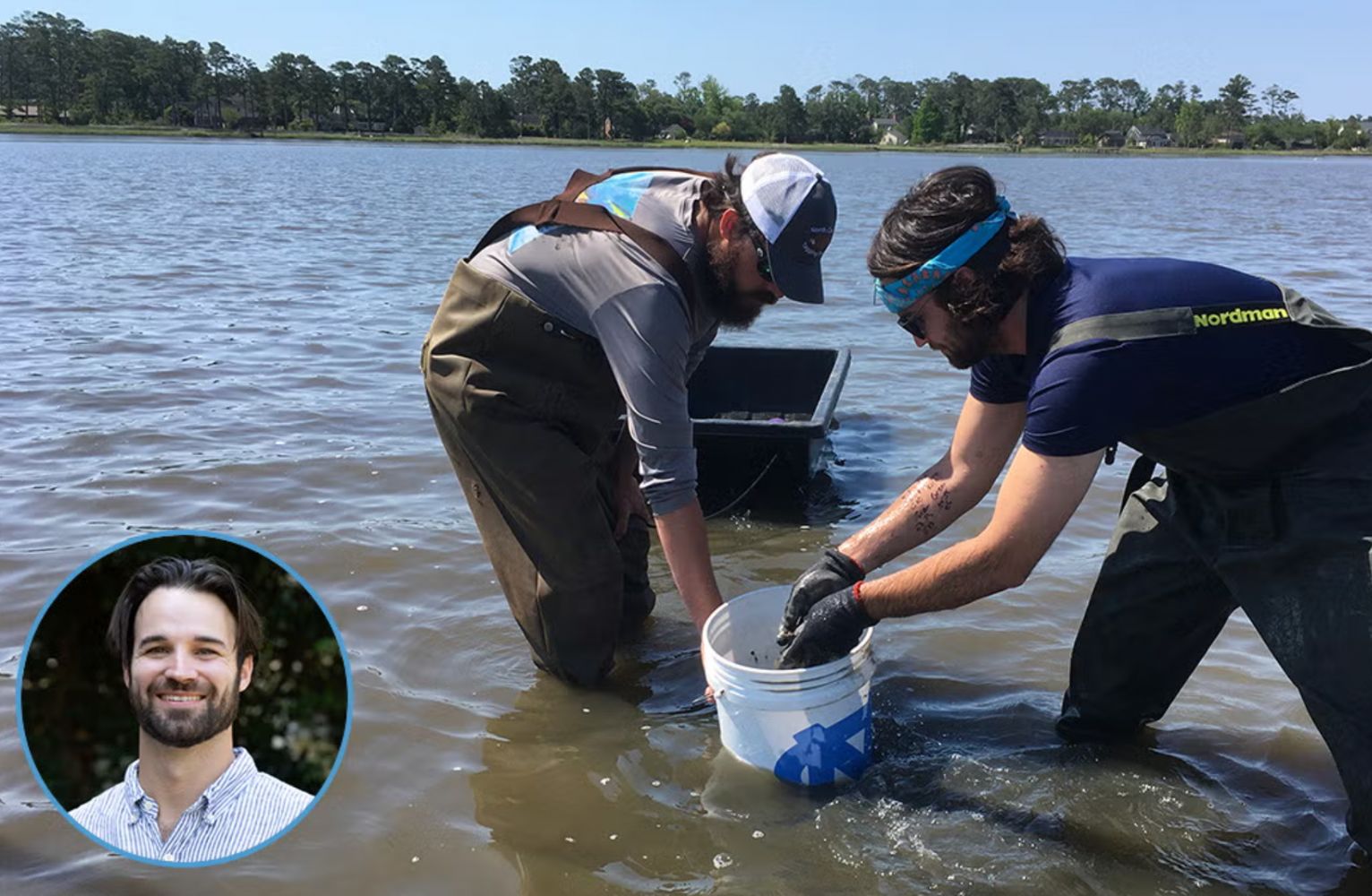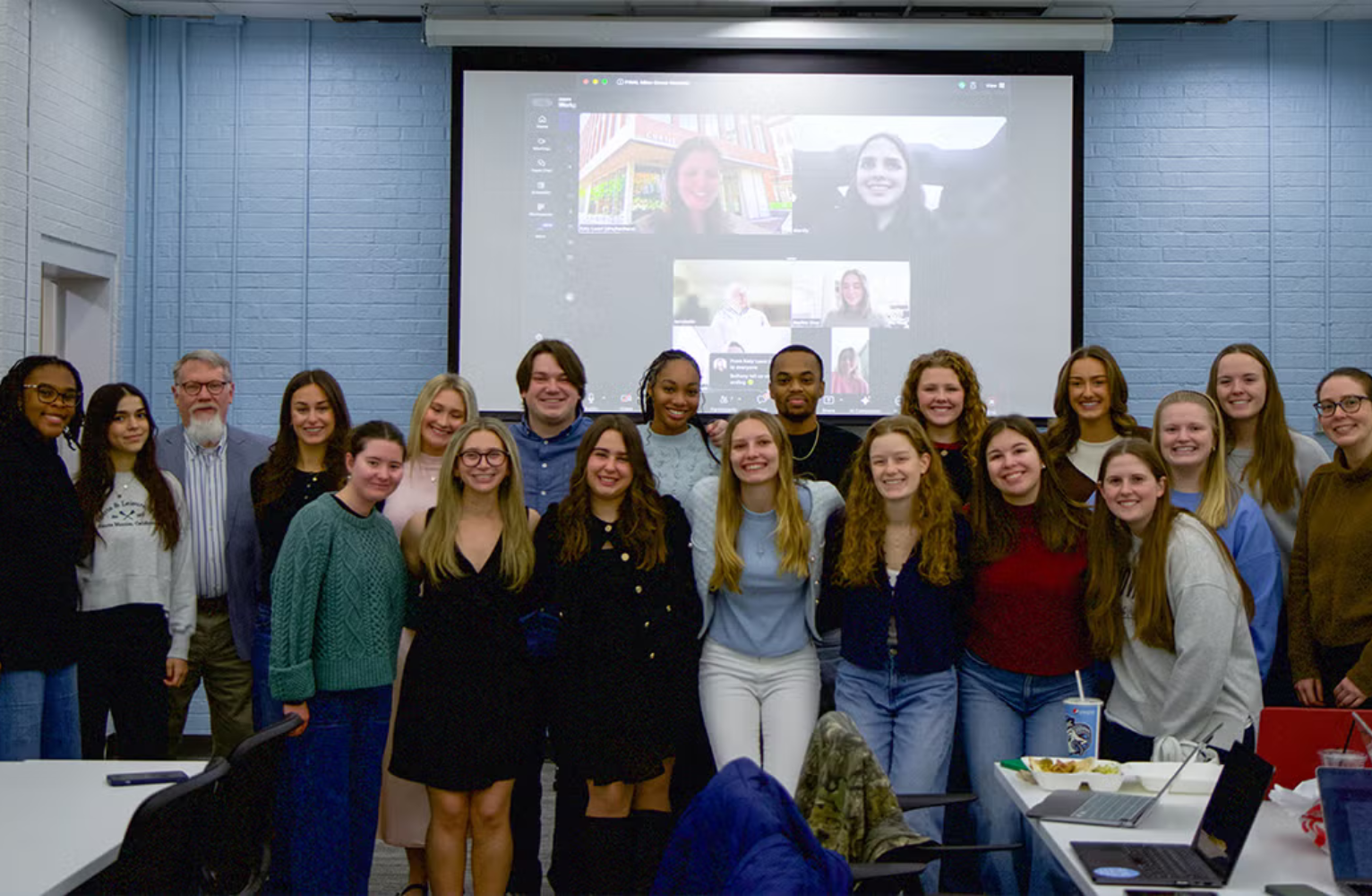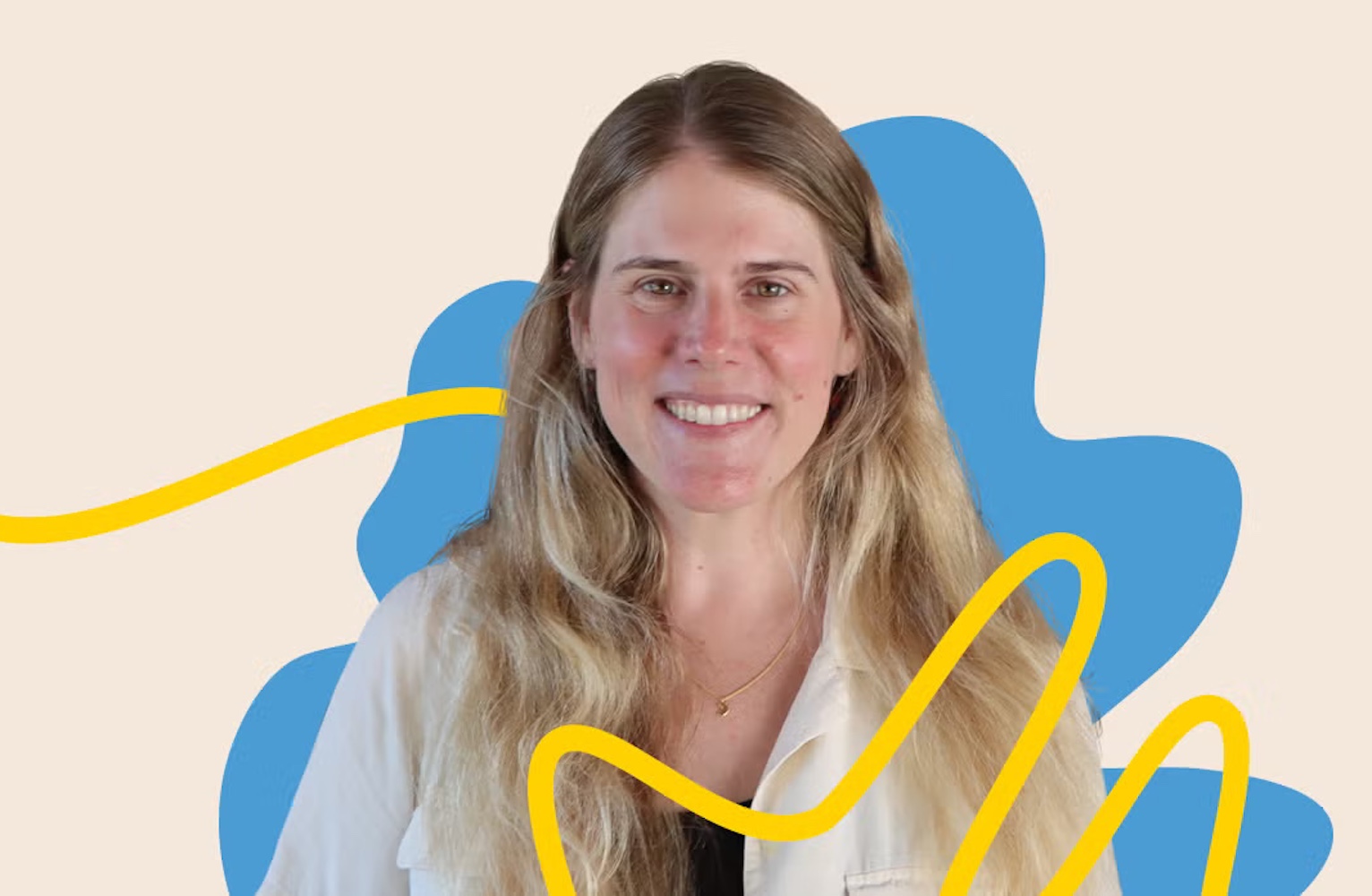
Doctoral student Nick Funnell (right) hand-excavates oysters in the Newport River for processing back in the lab. (Submitted photo)
As an undergraduate student at Bowdoin College, Nick Funnell took an oceanography course and visited the coast of Maine to investigate why many clams died at a farm.
“We didn’t have an immense toolbox,” he said, “but we were really interested in trying to help those people.”
This sort of “applied ecology,” using theoretical concepts to solve existing issues, excites Funnell and led him to UNC-Chapel Hill as a doctoral student in the College of Arts and Sciences’ environment, ecology and energy program. This time, he’s studying a different shellfish, oysters, along the North Carolina coast.
As one of The Graduate School’s Royster Fellows, an honor for which he’s received funding and travel opportunities, he has a bigger toolbox for his research. Funnell has been to 25 oyster farms — from Wilmington, through Morehead City and up to Buxton on the Outer Banks. He worked with harvesters to study the health of oyster environments.
“Oysters are a food source for people and provide valuable ecosystem services,” said Funnell, who will earn his doctorate in May. “They’re cleaning the water and they’re providing habitat. They’re just a very important species — ecologically, culturally and economically.”
The oyster industry provided nearly $15 million to the North Carolina economy in 2022 and is vital to the shellfish sector, which has grown considerably this century.
That’s one reason Funnell’s research is important.
The economic benefits from oysters could take a hit because of increasingly polluted waters, which shrinks the number of locations oystering can occur in North Carolina.
“There are lines along each estuary and water body where harvest is not allowed past a certain point because they’re too polluted,” Funnell explained, “and those lines are not moving higher up.”
But Funnell’s research is well-timed. The United Nations declared 2021-30 the Decade on Ecosystem Restoration. It’s an emphasis that extends to North Carolinians on the state’s coast who base their livelihoods on aquaculture. Funnell said the oyster growers he’s met through his research are vested in sustainability.
“Having any amount of oysters out there is going to be a net environmental positive because they’re filtering the water and making it cleaner and providing habitat,” Funnell said. “Rarely are oyster farming and restoration at odds.”
He’s centered these oyster farmers in his work. Several of Funnell’s research topics came from “having them tell me about what’s going on” and asking what he can help with.
“If it’s impactful in North Carolina, it ought to involve North Carolinians at every step,” he said.
At Carolina, Funnell worked closely with Joel Fodrie, director of the UNC Institute of Marine Sciences. This adviser-advisee relationship thrived because Fodrie is into “mud and buckets science,” according to Funnell, a self-described “fieldwork-motivated person.”
Funnell spent his second and third years in the program in Morehead City at the IMS, and he’s since made regular trips back and forth between Chapel Hill and the coast.
Funnell has also embraced the chance to educate, serving as a teaching assistant in three courses, including aiding students in their independent studies at the IMS. He comes from a family of teachers and can see himself becoming a professor one day.
“The beauty of an ecology degree is you can do academia, you can do nonprofit, and you can do local, state and federal government,” Funnell said.
What’s next? Funnell is looking for work that will allow him to get outdoors, research and mentor new scientists.
It’s a job-search wish list that mirrors his experiences as a Tar Heel.
By Brennan Doherty ’19, University Communications
Related Stories




